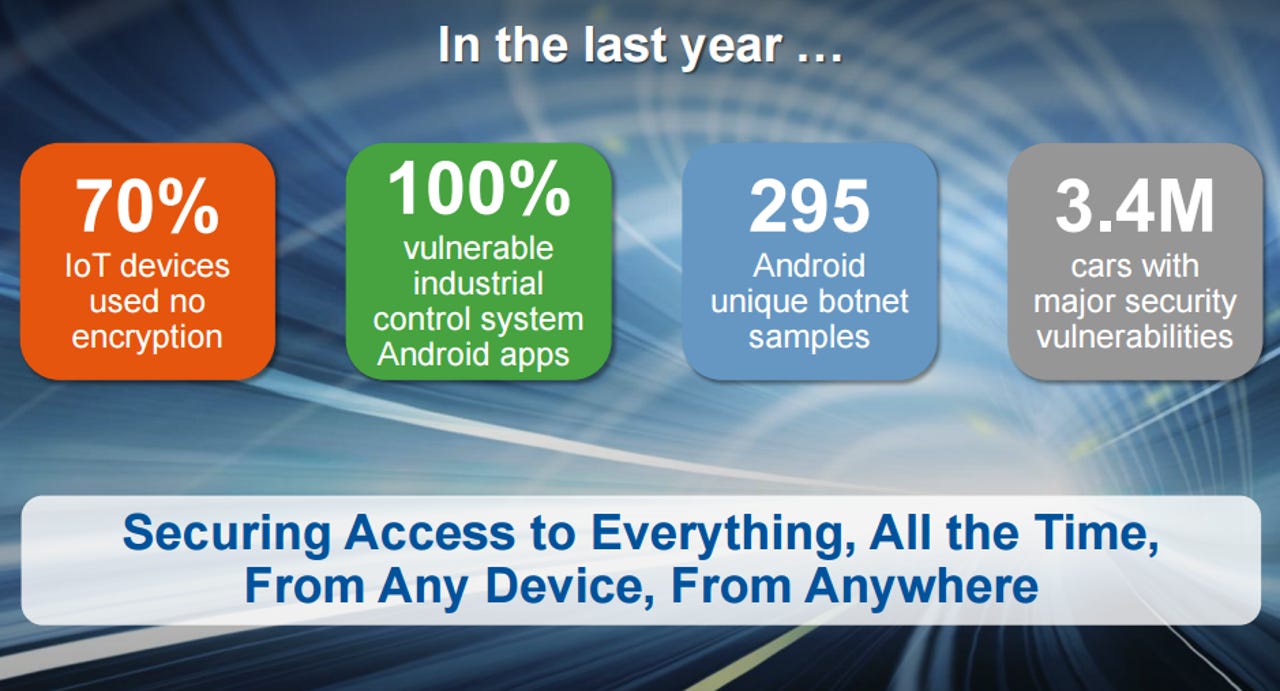Digital business will mean security headaches


As businesses go digital, deploy smart machines and go automation happy security practices are about to be rewritten. And the security situation is likely to lead to regulation for information technology because safety will be a lot more important than protecting data.
Speaking at the Gartner Symposium ITxpo, analyst Richard Hunter outlined how the change brought on by digital business will have great rewards as well as risk.
Gartner Symposium
"There will be tension between the risks and rewards," said Hunter. "Expect security to get worse before it gets better if at all. IT will be regulated in your working lifetime. No industry that has had this level of input into the economy has gone without regulation."
Perhaps the biggest issue with digital business, algorithm-run enterprises, cognitive computing and the Internet of things is that the connection points and vulnerabilities will expand. And instead of a few defaced Web sites and stolen data physical damage will be the biggest motivation in cybercrime.
What happens when smart machines are running your business and you haven't put in the security foundation or governance model?
To Hunter, the security challenge is clear. The issue is autonomous machines that will be able to think. These systems will have their own ethical structures and value systems. "The new challenge is that we don't trust other people yet we have to trust thinking machines," said Hunter.
Once these machines are compromised it's unclear what the outcome will be.
A few notable points from a series of Gartner presentations:
- Digital business will blur the lines between physical and virtual worlds, but that means a breach can cause physical damage. Safety will be the primary goal of security over enterprise data.
- Smart devices will become autonomous and can detect and solve security issues. The catch is that these autonomous machines can introduce new security issues.
- The lack of control over data between third party clouds and devices is going to require new security approaches.
- What's fuzzy in this new security world order is the role of humans. Humans are the weakest link yet perhaps the only check on compromised smart machines.